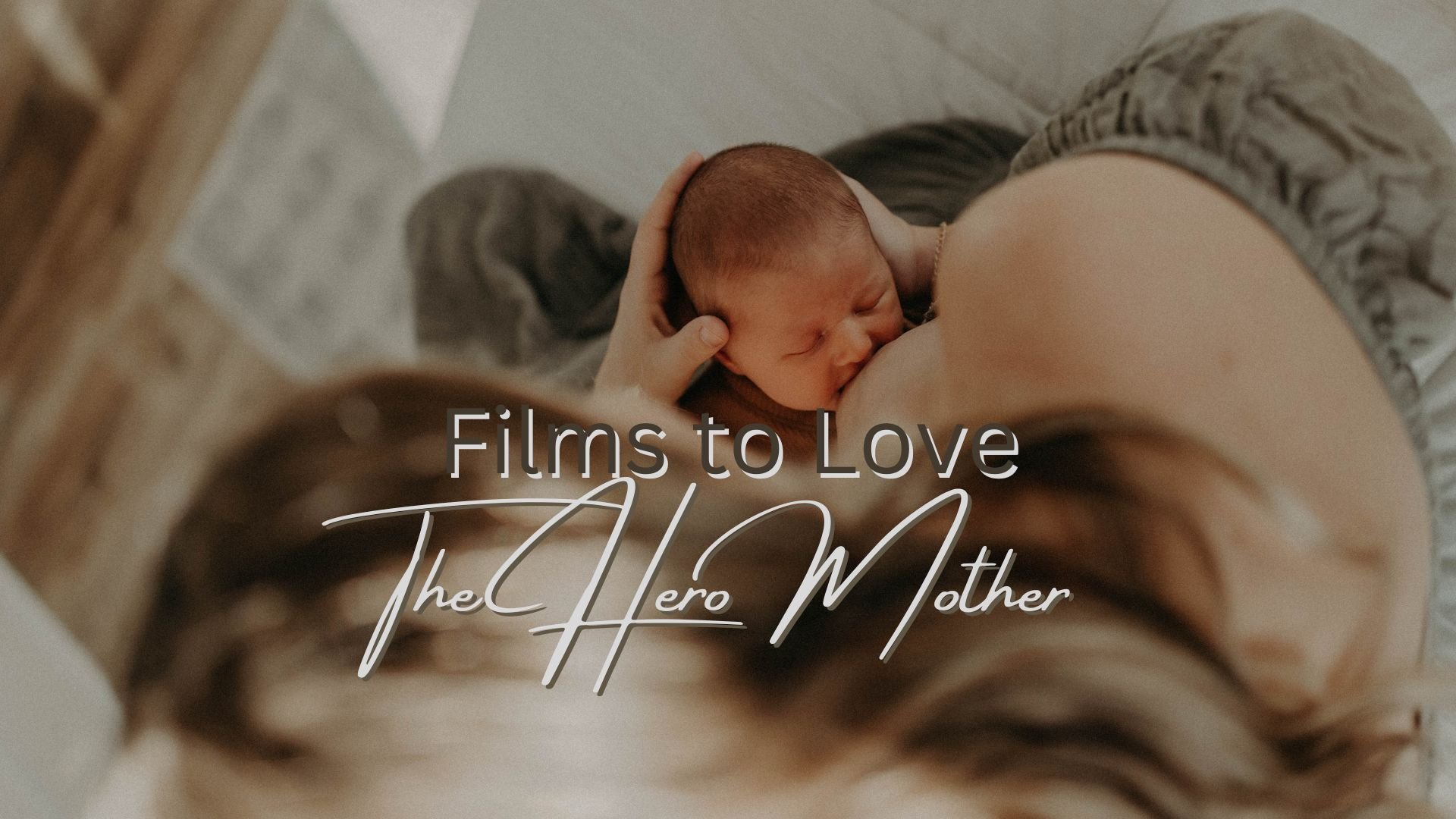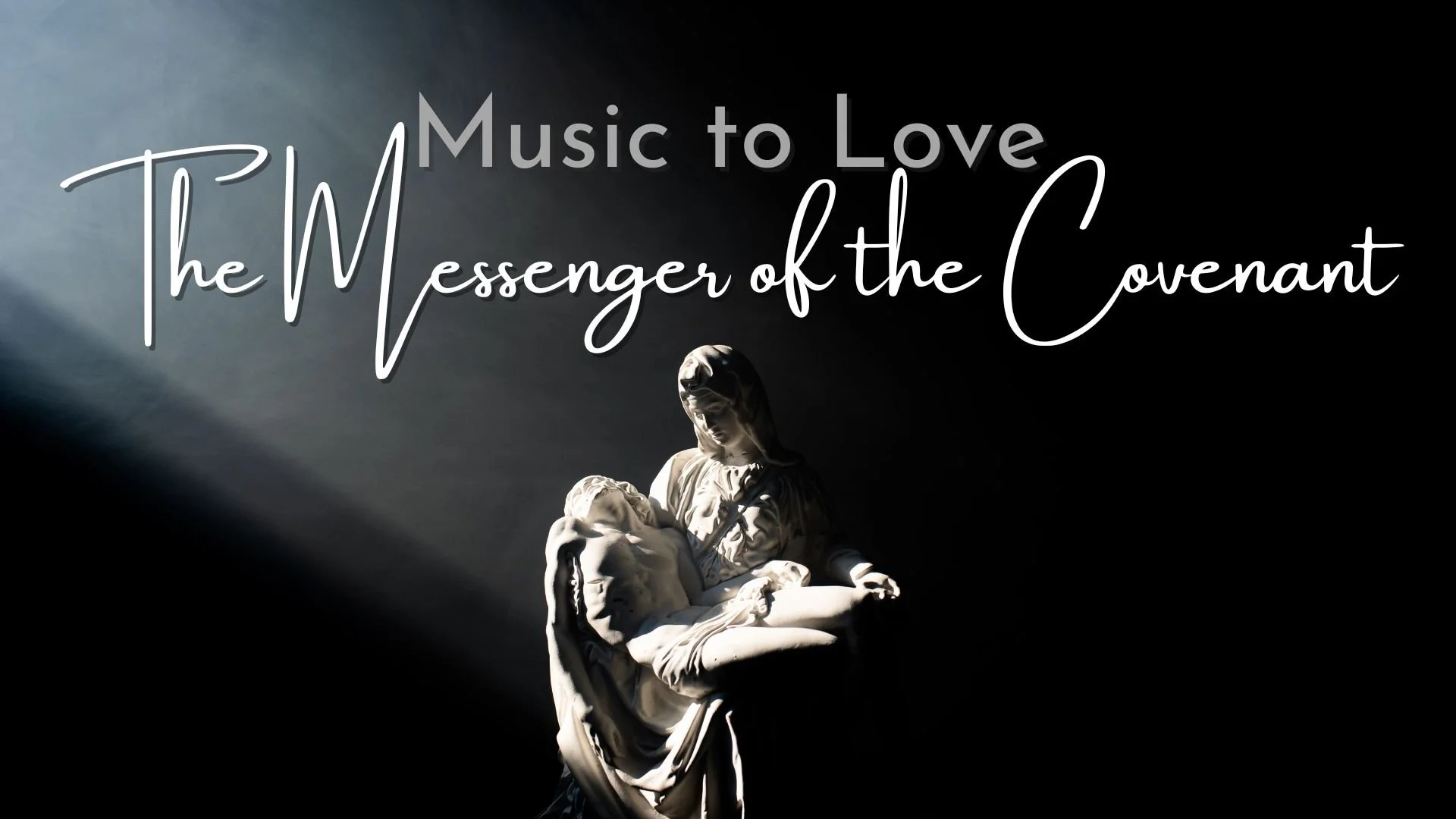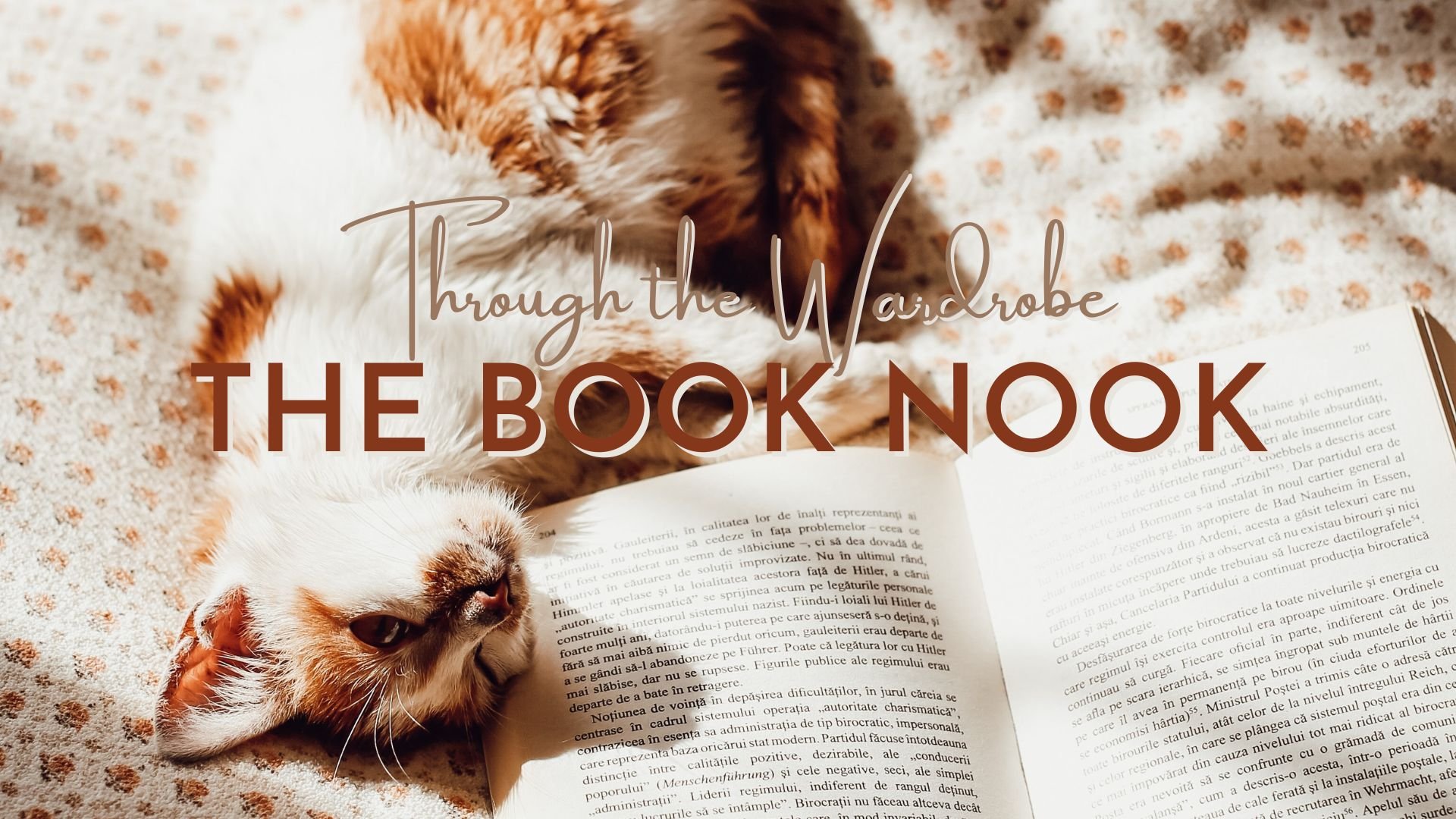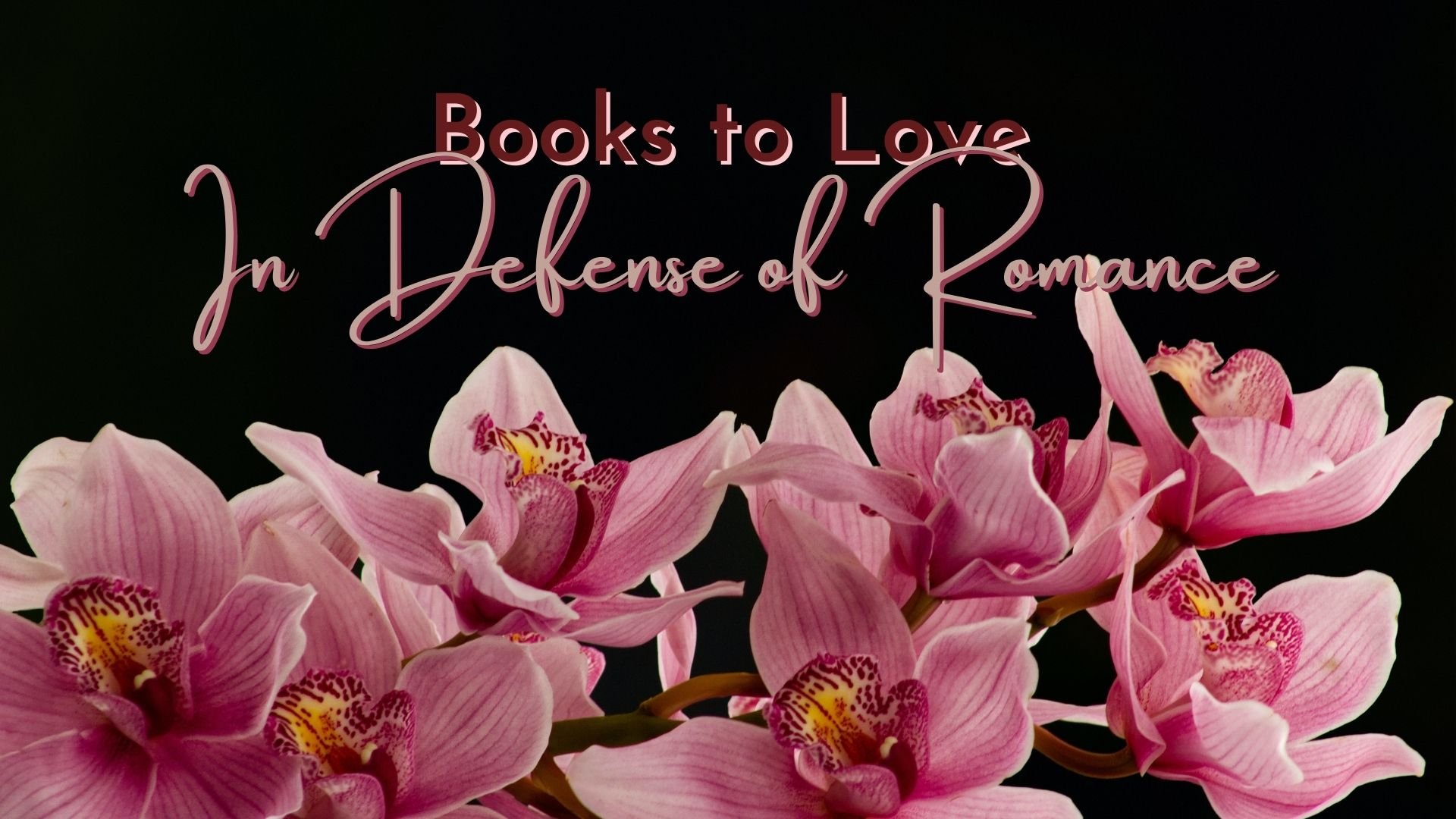Films to Love: The Head that Wears the Crown
While I was wrestling with gargantuan household projects and a bevy of other time sensitive things, a momentous thing occurred. The Queen of England died.
Now, I am thoroughly American with nary a desire for submission to royal rule, but I must say that with her passing, I felt true grief. Grief for the caliber of woman that held such an auspicious position.
The British Crown is a heavy burden, and while I would not resort to the hackneyed uneasy lies the head, I would go so far as to say that the woman who did wear the crown for seventy years had to endure a great many slings and arrows of outrageous fortune.
Queen Elizabeth II was a woman of substance and integrity. With so much of the world looking to her for guidance, she maintained a true sense of humility. Furthermore, Elizabeth II accomplished something that few of us envy or even achieve; she wore the crown, rigidly holding her personal self in check in order to maintain the neutrality of a true monarch of England in the face of ever changing political tumult and capricious public upheavals. In order to do such a thing, she embraced a Biblical truth out of John 3:30 where John the Baptizer remarks that Christ must increase within him and he must decrease. While I know Elizabeth II embraced this truth wholly within her personal life, in her regal life, she enacted an aspect of this as well. As queen, Elizabeth forced her personal self to diminish in order for the duty as anointed sovereign to be fully realized. Elizabeth the wife, mother, woman often took a backseat to Elizabeth Regina. That is a great sacrifice, one which she bore with dignity. As the Master said, “Well done, good and faithful servant.”
Perhaps what makes her legacy all the more inspiring is the fact that she was not meant to be queen nor was her father intended to be king. But, when The Duke of Windsor abdicated, his younger brother, and subsequently, his eldest niece, were thrust into the lines of succession.
George VI endured a great many trials during his reign. At the time when he took the throne, England was on the brink of war with Germany. The future was momentously uncertain. Furthermore, George VI had to overcome personal. Shy by nature, content to be a devoted husband and father, George VI shunned the limelight. He also dealt with a speech impediment the whole of his life. Publish speaking was an anathema. Yet, he soldiered on, placing his personal desires and comfort on the back burner to champion the cause of England. This is the legacy which he left for his daughter and from which Elizabeth took her guidance when she assumed the throne.
There are several films that offer glimpses into the lives of these two remarkable people. Today, to honor their legacy, I am sharing some of my personal favorites. Keep in mind, any fictional representation possesses the opinions and influences of the creators; therefore, they should be taken with a grain of salt. However, they are rooted in facts. Regardless, they are enjoyable watches and do honor to two people who sacrificed a great many things in the course of their lives in the name of patriotic duty and respect for the Crown.
The King’s Speech
There are a great many things to value about The King’s Speech. Every performance is exceptional. But, the thing I appreciate the most about it is how it showcases the very real hardships that George VI faced before and even after assuming the throne.
The King’s Speech focuses on the period before Bertie (George VI) had the crown thrust upon him. While his speech impediment was largely common knowledge, this movie showed the depth of struggle Bertie dealt with on a daily basis. When a person has a disability or impediment, often that person deals with self-doubt and self-worth issues. Bertie was no different than any other man in this regard.
My favorite part of the movie is a small scene at the beginning. Bertie is meeting with Lionel Logue- a speech therapist- for the first time. Lionel’s approach is radically different than any Bertie has ever seen. In fact, during the interview, you can see clearly that Lionel upsets Bertie. However, Lionel hooks Bertie with an impossible suggestion: he bets Bertie that he can have Bertie read something perfectly without a single stutter. While Bertie does scoff at this, he allows himself to be led. Lionel shows him a voice recording machine; the latest thing from America; a Silvertone. He turns it on and hands the Prince of Wales a volume of Shakespeare and a pair of headphones. The Prince puts the headphones on and this conversation ensures:
Bertie: You’re playing music.
Lionel: I know.
Bertie: So how can I hear what I’m saying?
Lionel: Well, surely a prince’s brain knows what his mouth’s doing.
There are many reasons that this is my favorite part. But most pertinent to Bertie and his impending reign, this exercise presents a truth that he embraced the whole of his reign. Turn off your thoughts, tune out the noise, and allow to flow out of you what needs to be spoken (see Turn Up the Quiet post). It implements that understanding of proper alignment (see Getting Your Ducks in a Row post). If you remove the obstruction, then you will have a proper flow.
What The King’s Speech shows, however, is that while you can identify the obstruction, it takes work, dedication, and constancy to remove it.
What you will take away from this film is the commitment and cost for Bertie in assuming the throne. And while there is sympathy for his brother wanting to marry the woman that he loved, it is a clear juxtaposition of selfishness versus selflessness. It makes you truly respect and, if I may be so bold, love George the VI. And it is a great part of the legacy that he passed on to his daughter.
Darkest Hour
Darkest Hour is not about George VI, but he appears at several pivotal moments within the film. The first time we meet him, he’s loath to meet Winston Churchill. From The King’s Speech, you can deduce that Bertie was a man who liked things to be easy going. He did not enjoy confrontation at all. However, as pertinent to his position of Prime Minister, as well as PM during a World War, Winston Churchill was no stranger to confrontation. He was verbose, opinionated, and strong in his resolution. These three characteristics provide the ingredients for a formidable recipe, one while Bertie was not personally looking forward to.
However, while the adage is that politics makes strange bedfellows, war makes strange allies. Regardless of their differences, when faced with the impending struggle of a formidable and morally bereft enemy, these two men dig deep within themselves and have honest, enlightening moments where they press pass their impasses and forge a strong bond. Born of deep understanding in their personal foibles and frailties, these men see the greatness within each other. Together they produce leadership for a nation besieged in a war that was waged to end all that England and the free world held dear.
While Darkest Hour may be chiefly about Winston Churchill and his indefatigable and incomparable leadership of England at such a time in her history, the role of the sovereign cannot be overlooked. It is immeasurably entwined with the destiny of it’s nation.
One scene stands out. Churchill had reached a low point within himself. He’s fraught with uncertainties. All his weaknesses seem to be rising to the surface at the same time. He’s overwhelmed. It is at this moment that Bertie visits his Prime Minister.
Churchill had implemented a campaign of resistance against the Nazis. He’s been staunch and unmoving in his plan. But realities are presenting themselves. Country after country is falling to Nazi invasion in Europe. Belgium, Poland, Norway, Holland, and now France. Support for Churchill’s campaign is waning considerably within his own war cabinet. He has reached the end of himself; he stands alone, facing a fearsome foe.
Enter George VI. He confronts Churchill. Presses him. Demands to know the full truth, no matter how horrible. So Churchill tells him. The campaign of resistance is losing ground. Within his own party, Churchill has no support. He must address the House later in the day and, without support, he must argue for peace negotiations with Germany.
In this moment, alone, with no audience to witness an occasion of greatness, Bertie assumes his regal robes and advises as a sovereign. He tells Churchill that he has the support of the throne. Furthermore, he reminds Churchill of advice that he himself had given the king once. Go to the people. Be frank and honest with them. Let them know the cost for a campaign of resistance. And take his cues from them.
Of course, the rest, as they say, is history. We know that Churchill does lead the campaign of resistance. We know that England, London in particular, bore the brunt of such a stance. And we know that good conquered evil in the ultimate end.
What many of us did not know is that the unflagging and dauntless courage displayed by sovereign and Prime Minister in public, wavered in private. Fear was felt keenly by both. The uncertainty of the times beset them, robbed them of sleep, made them question themselves. Yet, in the darkest personal hours, Churchill and George VI were bulwarks for one another.
For a man not elected nor born to wear the crown, George VI showed true leadership, selfless leadership, that inspired a nation to stand for righteousness. I do not know if there can be a greater legacy than that.
The Scapegoat (2012)
Of all the films I am highlighting in this post, this is the one that is the least about the royal family. However, I do appreciate one aspect of this film that 100% revolves around the coronation of Elizabeth II.
Scapegoat is based off of Daphne du Maurier’s novel of the same name; in this film version, starring Matthew Rhys, the story has been moved from France to the United Kingdom in the time leading up to the coronation of the Elizabeth II in 1952. The plot revolves around a classics professor, John Standing, who has been let go at the boarding school where he teaches. He has no family and has decided to do a walking tour of England before he finds work. One evening, he bumps into a man who is his doppleganger. The resemblance is uncanny.
The doppleganger, Johnny Spence, insist that they have dinner together. He ask John many questions about himself, seeming to pump him for information. John Standing drinks a considerable amount, much more than he’s used to, and when he wakes up, theirs a chauffeur knocking at his rented room’s door, and none of his possessions are anywhere in sight.
You see, Johnny Spence comes from a wealthy family. The business deal that he was charged to make in order to save his family’s fortune did not go as planned and he did not want to face his family. So he drugged John Standing, assumed his identity, and left John holding the bag. Disoriented, John allows the chauffeur to bring him to Johnny’s home, not correcting the mishap that he’s not actually Johnny. Once on Johnny’s turf, he begins to understand why Johnny ran away and also get a glimpse into the disreputable man that Johnny actually is.
Being a man who has no family, somehow John allows himself to assume Johnny’s identity. Because the caliber of John’s character is light years away from Johnny’s, things begin to change within the Spence household. And the changes are noticeable.
I will not give anything further away, other than to say this is an excellent drama and worthy of a watch. But, what I appreciate in relationship to Elizabeth II is a statement made by Charlotte, the housekeeper/nanny, to John:
“This princess Elizabeth wasn’t meant to be queen any more than her father was meant to be king. Sometimes nature or fate take the decision. Perhaps it will be the making of us.”
While this sentiment works well in the film’s plot, I believe it also embraced a true sentiment within England at the start of Elizabeth II’s reign.
The Crown
A miniseries that painstakingly walks through the entire reign of Elizabeth II is quite an undertaking. Furthermore, it requires the airing of some dirty laundry. Perhaps royal influence was exerted to ensure a favorable representation of Elizabeth, but I think not. Too much of what is presented in The Crown is public knowledge and the license taken by the creators pays homage to the men and women portrayed. No one is entirely bad or good; each person is presented with equanimity and compassion, which I appreciate.
Having watched all the available seasons of The Crown, I must say this series is excellently done. The casting is superb. For the first two seasons, Claire Foy embodies Elizabeth II; she possesses a regal reserve as well as expressing the complex juxtaposition of denying oneself and taking up her cross. As viewers, we are given insight into the difficulties and unenviable realities such a prestigious position demands. In the preceding seasons, Olivia Coleman brings a beautiful maturity to Elizabeth II; showing how she has grown fully into a confident sovereign, trusting her judgements and giving responses that are appropriate and, now, natural to her person.
Perhaps what I appreciate most about this series is the natural evolution displayed in the principle characters. At the start, we see Prince Philip, the Duke of Edinburgh, straining at the confines and expectations placed upon him when his wife ascended the throne. However, bit by bit, we see how he begins to fit into his role, learning what is expected of him, rising to those challenges, and, on occasion, challenging those restrictions. (Check out the wisdom and innovation he brings to the Queen’s coronation in Season 1, Episode 5: Smoke and Mirrors.)
The same can be said for Her Majesty. Elizabeth transforms subtly from the uncertain queen, struggling with that tenuous balance of self and sovereign to the woman who wore the crown with complete understanding as to her role and confidence in her ability to perform her royal duty.
What this series shows with stark clarity is the hefty weight of wearing that crown. For example, when Princess Margaret wishes to marry Townsend, it is her sister Elizabeth’s greatest wish to grant her that desire. However, as queen, Elizabeth is called upon to deny Margaret the desire of her heart because of the myriad ramifications of such an act upon the realm and specifically the royal family. The burden upon Elizabeth is that she must be the chief inflicter of pain and heartache; the burden upon Margaret- also a member of the royal family- is that she must bear her pain and heartache in silence, accepting that this is the toll one must submit to in order to occupy the shoes of a royal.
Another example that comes out more and more in the later seasons is the neglect and seeming cruelty that being queen takes upon Elizabeth’s children. This is most clearly shown in the portrayal of Charles, the eldest son and heir to the throne. While in the earlier seasons, we are given glimpses of how Charles falls through the cracks of his parents’ notice more often than not, it is not until he becomes an adult and has royal duties thrust upon him as the Prince of Wales that we begin to see how much of a rift exists between mother and child.
This is driven home all the more when Princess Diana makes her debut as mother to a future heir, William. In the 4th Season, episode Terra Nullius is a thoughtful juxtaposition of Diana and Elizabeth. While the show does not attempt to tout one over the other, it does provide a great deal of food for thought, particularly within the personal reactions of Charles. While he often is short tempered and annoyed with Diana, there are moments, especially when she demonstrates the maternal bond she has with William, where that falters. While his own mother followed royal precedent and left Charles and his siblings at home to fulfill regal duties upon tours of the Commonwealth, Diana insists on bringing her son, William, with her and Charles when they tour of Australia. This causes many issues, but you can see that it is one aspect of his wife’s character that Charles both appreciates and envies. As Charles and Diana’s marriage dissembles, you still catch glimpses of the childlike yearning within Charles. And while he can silently admire Diana’s ease of expressing her love for her children, you also see that he is emotionally stunted in that same area.
In fact, these later episodes between Charles and Diana have provided the foundation for me to have a great deal more compassion for Charles. In so many regards, his petulant and selfish behavior is unlikeable. Yet, when you believe that no one loves you- at least not the way that you desperately want to be loved- petulance and selfishness are defensive acts.
These pros and cons on display breath a relatable life into the royal family and the Crown itself. Furthermore, many episodes provide a launching point for the viewers to research out the history of so much that happened during the reign of Elizabeth II. You’ll see the transitions of government from Winston Churchill to Margaret Thatcher and all the political upheaval in between. In fact, my personal favorite episode is 48:1 in the 4th Season. Margaret Thatcher’s iron resolve is on full display, showing how she would defy the entire Commonwealth and the Crown to stand with her personal convictions, many of which I agree with, particularly when she points out the hypocrisy so easily embraced by much of the Commonwealth and even the Crown itself. This is no easy task, of course, but the writers do an excellent job of showing two formidable women’s personal opinions, convictions, and perspectives on the role of government. Follow this one, with War, the concluding episode in Season 4, and you will be touched at how well two women, on seemingly opposite sides of the political spectrum, can rise above the petty to find the positions upon which they are united. It recollects the scene from Darkest Hours when George VI meets with Churchill; just as then, Elizabeth II embraces her father’s legacy and behaves in a manner that honors it.
I’ll leave you with one final thought. In this final episode, Prince Philip meets with Diana to gauge how she is doing in the midst of her upheaval of a marriage. During the course of their talk, he says one illuminating thing:
“You’re right to call me an outsider. I was an outsider the day that I met the 13-year old princess who would one day become my wife. And after all these years, I still am. We all are. Everyone in this system is a lost, lonely, irrelevant outsider apart from the one person, the only person, that matters. She is the oxygen we all breathe. The essence of all our duty. You’re problem, if I may say, is that you seem to be confused as to who that person is.”
So often, we want the fairy tale of what a royal life must be like. Certainly there are consolations and benefits, but this series allows a more pragmatic look at the costs of wearing the Crown itself, or loving someone who does.
If you do take the time to watch it, aside from 48:1 and War in Season 4, I thoroughly enjoy Act of God from Season 1, Vergangenheit from Season 2, and Coup and Tywysog Cymru from Season 3.
The Queen
Now, on to the costs. Of all the films I highlight in this post, The Queen is the most difficult for me to watch. In fact, I’ve only watched it once. However, it provides yet another glimpse into the ever changing, and yet unchanging, world of the Queen.
Focused upon the week between the death of Princess Diana in Paris and her funeral in London, The Queen displays the dichotomy between the modern culture of England and the generational traditions of the Crown.
Portraying the Queen is Helen Mirren, who does an exceptional job, for which she won a deserved Oscar.
The truths exposed in this movie are ones which should be considered. Does an overwhelming emotional response from the people dictate what traditions should be upheld by venerable, timeless institutions? Should the capriciousness of culture dictate what tenants and traditions should be cast aside or kept? These are questions any nation or government should ask. Are there times when tradition should give way to a current sympathy, trend, or idea? And, if so, does it mean that tradition should be retired for good?
These are things tackled within this film. The public pressure for a royal acknowledgment of the pain a nation felt at the loss of the ‘People’s Princess’ had to be addressed. Yet, for Elizabeth, this was a difficulty, because the moment that Diana and Charles divorced, Diana ceased to be a part of the royal family. Therefore, according to tradition, she was not to be given any royal notice or acknowledgement. She was a private citizen who had died.
True though this stance may be, it betrayed a stark detachment between the Royal Household and their subjects.
Enter Tony Blair, the new Prime Minister. Leading the Conservative Party, Tony Blair stood, in many ways, against what the Crown stands is. According to the film, his own wife was anti-monarchy.
So, here is this man, struggling to fully understand the role a seemingly antiquated institution like the Crown plays within the current political landscape, and Princess Diana dies, and all hell breaks loose within the realm. Every suggestion he makes to the Crown is politely disregarded. This leads to personal frustration for him, but as time goes on, it opens his eyes to what the Crown means to the nation and why he wants to work very hard to help the Queen and her family save face, and ultimately, save the integrity of the institution.
Having taught English for many years, the portion of the film that captured my attention the most was a excellent allegory between the demise of the Queen’s personal understanding of the role of the crown. This allegory is done with the stag.
When the death of Princess Diana was announced, the royal family were on vacation at Balmoral in Scotland where they were able to be separated from the public eye and afforded time to enjoy nature. On their property, an impressive red stag had been seen. Prince Philip took his grandsons’ out to hunt for the stag in the wake of their mother’s death in a bid to get them into the fresh air and distract their minds as best as possible from the horrors unfolding in their life.
One afternoon, as the queen is driving herself out to meet them, she traverses a stream and damages her vehicle on a rock. She phones back to Balmoral to tell the she is in need of assistance and then takes a seat on a large rock at the edge of the water. Breathing in the silence, she turns her head and sees the stately stag standing very near to her. Such unexpected majesty arrests her. They sit there for a string of moments until she hears gunshots in the distance. It is then that she tells the stag to go. Her impetus is to protect the stag.
Later in the movie, just as the she’s about to concede to the wisdom of the Prime Minister and return to Buckingham Palace to make an official appearance and statement to the people, she learns that the stag had wandered off of the Balmoral estate and been shot by a tourist on a neighboring estate. The queen requests to go and pay her respects to the creature.
It is in the game house, decapitated, hung to drain. The queen stops at the table where it’s head is, it’s impressive rack waiting to be mounted. This is a bittersweet moment, presented with great tenderness. The queen is saying goodbye.
The goodbye is so much more than to a beautiful creature. It is a goodbye to the naivety that the queen herself possessed. The crown must evolve with the people, and the role she has played up to this point can no longer continue. It must change. It must listen to the needs of its subjects and act accordingly. In this moment, she digs deep within herself, much as her father did in his darkest hours, and marshal a new strength and a new resolve to meet the new tide. Which she did, with dignity and equanimity.
Shakespeare wrote: Some are born great, others achieve greatness, and some have greatness thrust upon them. In the case of Elizabeth II and her father before her, they fall squarely into the latter. Greatness was thrust upon them. Assume the lugubrious and unwieldy burden of the crown is indeed having greatness thrust upon them. Yet, while it was thrust upon them, they achieved greatness, each, during their reigns, and led a nation with integrity, humility, and compassion.
Certainly during Elizabeth II’s reign, there were multiple instances that drew from her, pulled at a strength she did not know she possessed, demanded and demanded of her until she forced herself to rise to the challenge. She saw skirmishes, wars, cultural upheavals, personal disasters within her family, losses, and disappointments. Yet, as her father taught her, she met each one with the wisdom of a queen, the humility of a woman, and the compassion of a Christian. And while there are many things upon which we could focus in the legacy Queen Elizabeth II left behind, wisdom, humility, and compassion are three which have indelibly marked themselves for me.
I honor the memory of this great woman.



























































